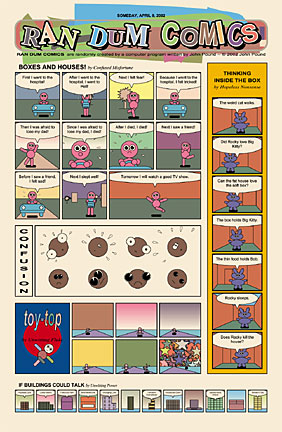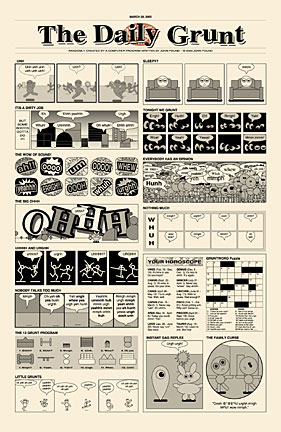In exploring randomness used as a generative tool in computational art, I came across a randomly computer-generated comic by John Pound.

An example of a randomly generated comic sequence 
The program used to create this comic pulls from a database of random words, colors, shapes, figures, objects and scenes in order to create these comic pages. Playing off the “Sunday Comic” aesthetic and subject matter, Pound wanted to explore the parameters we set for ourselves as comic-writers and comic-readers. What are the minimum requirements needed to deem something a comic? To what extent can we abstract and randomize something yet have it remain fully recognizable (in this case a page of comic panels)?
This piece makes me think about the purpose of randomness in the ways we conduct our lives; to what extent are we truly in control of our lives? If a randomly computer-generated sequence of elements can register as an everyday comic, how much of our everyday lives are in fact random and out of control? We may, in fact, subconsciously prompt ourselves to recognize these occurrences as something intentional that we have crafted.
![[OLD FALL 2020] 15-104 • Introduction to Computing for Creative Practice](wp-content/uploads/2021/09/stop-banner.png)